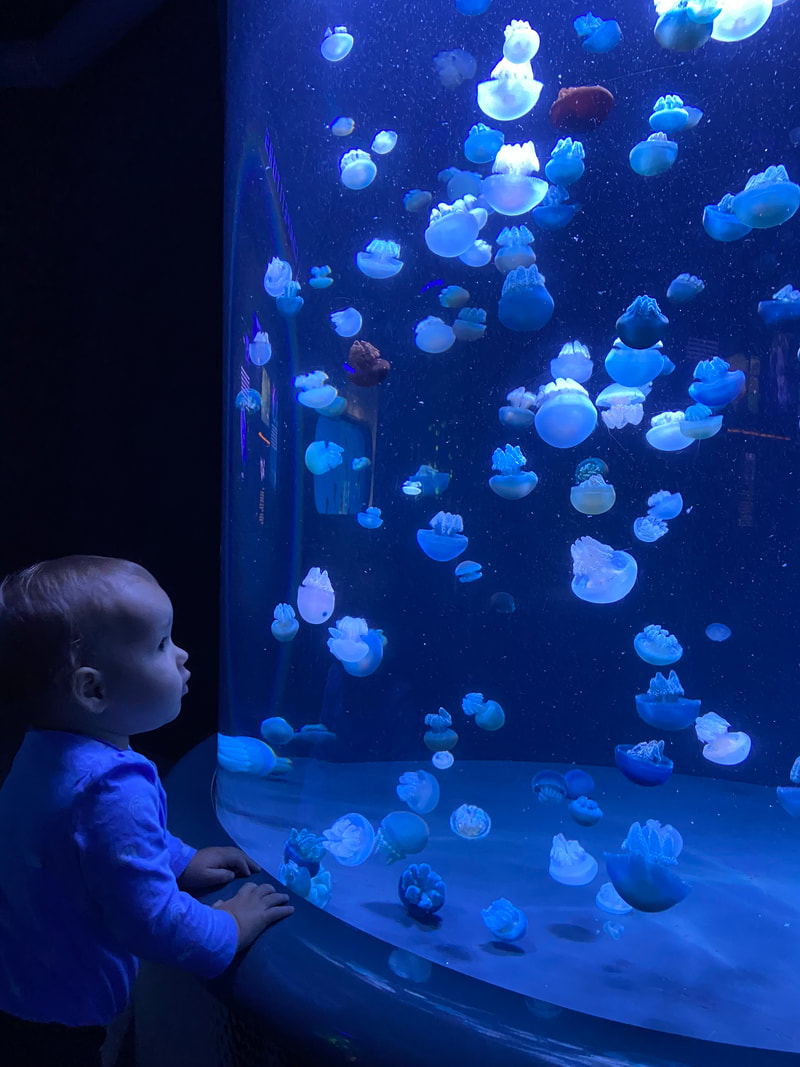 Zoe at the aquarium. I should have written it down. A scientist was on the radio recently, talking about the value of stillness, but I can’t remember her name or the program now. Most, if not all, of her innovative ideas, she said, come to her in moments of stillness, when her thoughts are left to wander undirected by external input – no phone, no computer. Only then does she come up with new ways of seeing, new ways of thinking. The world needs more stillness, she contends. Science needs more stillness.
Watching my one-year-old grandchildren (I have three of them now!), I observe exactly what that scientist means. Left alone, undirected, they are tiny scientists discovering the world. I, too, try to practice observational science when I hang out with them. If I put away my phone and any agenda of instruction, they teach me things. I watch them learn about physics as they try to balance on two feet, climb a slide, descend a staircase, or drop a handful of sweet potato onto the floor. I listen to them mimic sounds – not just human language, but birdsong, barking dogs, or a squeaky wheel. They taste the world, reach out to touch and manipulate every object. Their looks of wonder are everyday expressions, or maybe it’s not wonder but deep concentration. So many neurons firing in the brain, processing, sorting things out, fitting them into one possible interpretation, then reassigning connections as more data comes in. Learning the science of life. My grandchildren are okay with undirected time. You could call it idleness. Idleness should not carry the pejorative weight it is often assigned. There is nothing static or lazy about an idle child. In idleness they find their way, all on their own, little budding scientists. Idleness allows for stillness; stillness leads to discovery, or to sleep, when that’s what is needed. Don’t we all still have a lot to learn? Have we forgotten how to discover the world, which is new in so many ways, every day? Don’t we all need to sleep when we’re tired? Shouldn't we re-discover the science of life? Thank you little ones, for reminding me to be still.
0 Comments
Your comment will be posted after it is approved.
Leave a Reply. |
AuthorRobin Clifford Wood is an award-winning author, poet, and writing teacher. She lives in central Maine with her husband, loves to be outdoors, and enjoys ever-expanding horizons through her children, grandchildren, and granddogs. Archives
April 2024
Categories |
 RSS Feed
RSS Feed